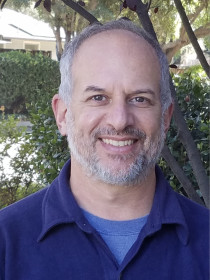
Neil Tangri
Connect with Neil
About Neil
Dr. Tangri's research focuses on waste, climate change, and plastics. Dr. Tangri's work covers both the physical science aspects as well as policy questions, particularly in the international policy arena. He serves as Senior Science and Policy Director at GAIA and is an inaugural board member of the National Marine Debris Foundation.
Contributions
In the News
Publications
Analyzes an extremely long coral core from the central South Pacific that reveals a "null zone" (an area of the Pacific little influenced by El Niño-Southern Oscillation, as it lies at the pivot point between the dipole ends). Findings show that subtle changes in the location of this null zone over 5 centuries indicate that ENSO's footprint has shrunk eastward over the 20th century.
Analyzes the amount of greenhouse gas emissions produced from incinerators, and finds that incinerators produce more emissions than any other energy source. Argues that their inclusion as "renewable energy" undermines clean energy goals and perpetuates environmental injustice.
Models the climate impacts of adopting zero waste in 8 diverse cities. Findings include: the zero waste model can reduce waste sector greenhouse gas emissions by 84% on average; composting is critical to deep methane reductions while recycling can make waste a "net negative" sector; single-use plastic bans are important adaptation measures to reduce flooding and disease vectors.
Addresses the lack of a widely adopted trash typology system for monitoring and addressing trash (mismanaged solid waste) pollution worldwide, and develops a standardized framework (the Trash Taxonomy Tool) which can be used to enhance, create, and compare trash surveys.
Highlights the most actionable steps governments can take to reduce methane emissions. Findings show that waste prevention, source-separation of organic discards, and other methods can reduce solid waste methane emissions by as much as 95% by 2030.
Evaluates waste sector actions and targets found in Nationally Determined Contributions under the Paris Agreement. Demonstrates that few countries focus on waste (a missed opportunity) and some promote counterproductive policies that will lock in long-term greenhouse gas emissions.
Evaluates the job generation potential of zero waste initiatives, and finds that waste management strategies that produce the best environmental outcomes also generate the most jobs. Recycling, repair, remanufacturing, and composting generate on average 200 jobs per ton of waste as landfill and incineration.
Presents the fundamental, high-level findings of climate science that are most relevant to the international climate change negotiations in the form of an advanced undergraduate primer.
Analyzes decades of deployment of "high technology" waste-to-energy technologies, and finds that they have largely failed for a combination of technical and economic reasons.
Provides case studies of 9 cities' implementation of varying zero waste models.